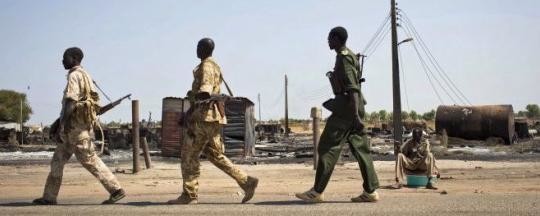The prospects for an escalation of violence at the beginning of South Sudan’s dry season are high, a U.N. panel of experts report said.
The report, from an independent committee of South Sudan experts, said that after the “de facto” collapse of the country’s peace agreement, “the political and security situation in the country has continued to deteriorate markedly,”
The U.N. panel of experts report is part of a recent wave of criticism regarding the country’s peace deal, approach of the international community, and both sides of the conflict.
South Sudan’s government “is leading the country inexorably towards a devastating tribal war, coupled with a sense that the international community is failing to take the steps necessary to avoid a further escalation of the conflict,” the panel said.
The report cited countless examples of hate speech and incitement that increases tension between communities.
The country’s war increasingly threatens to spill over into neighboring countries, the report said. The experts wrote that on 13 August, at least 800 troops from the SPLA crossed into the neighboring Congo to engage in a battle with SPLA-IO forces. On 17 August, two of the country’s MI-24 helicopters crossed the border of the Congo and attacked rebel fighters.
But the panel identified Central Equatoia as the location of the most severe violence, listing reported arbitrary detentions, executions, and rape from the army.
Civil society have also been a target of harassment from the government, the panel said, “which have involved both an increase in onerous bureaucratic restrictions and overt intimidation,”
The body responsible for approving applications of civil society groups, the Relief and Rehabilitation Commission, “has threatened to withhold renewals or revoke registrations if organizations do not forfeit their assets to the Commission on demand”, according to the panel.
“Most recently, three aid workers were killed in the space of seven days at the beginning of October,” the panel added, and said that in the first nine months of 2016, more than 640 humanitarian access incidents were reported, including 81 in September alone. Most of the incidents involved violence against humanitarian personnel and assets, the report said.
The panel also found evidence that a batch of Israeli made weapons have been transferred from the government of Uganda to South Sudan in violation of the weapons end user agreements based on weapons collected from SPLM-IO fighters in the Congo.




